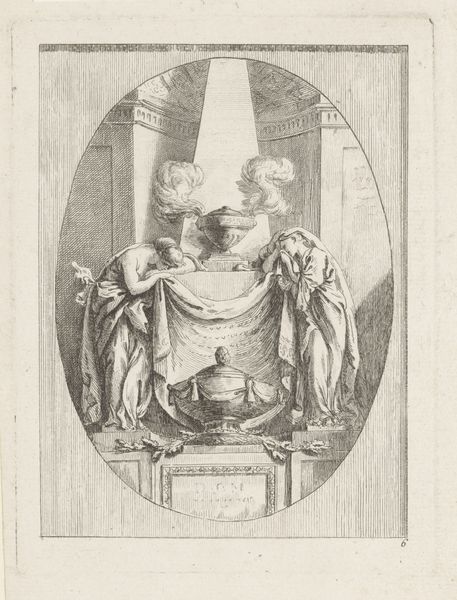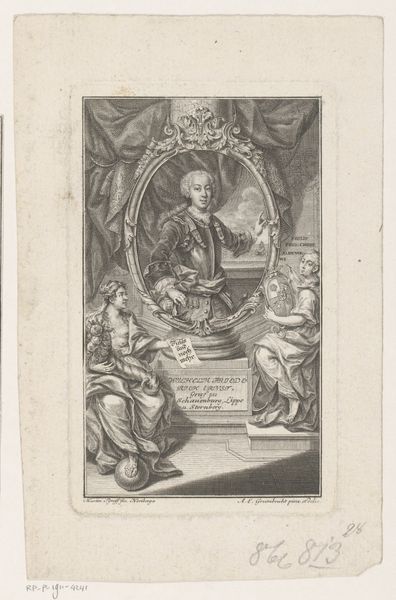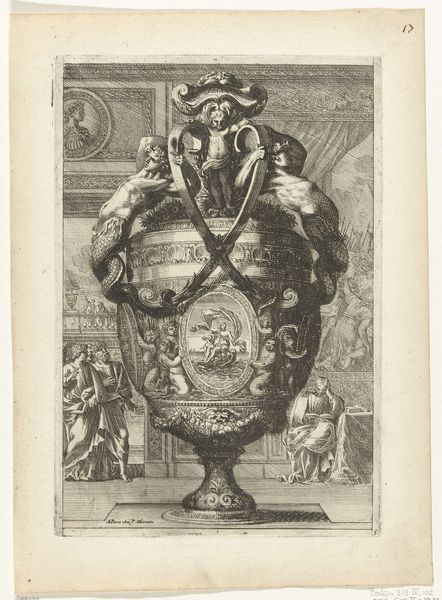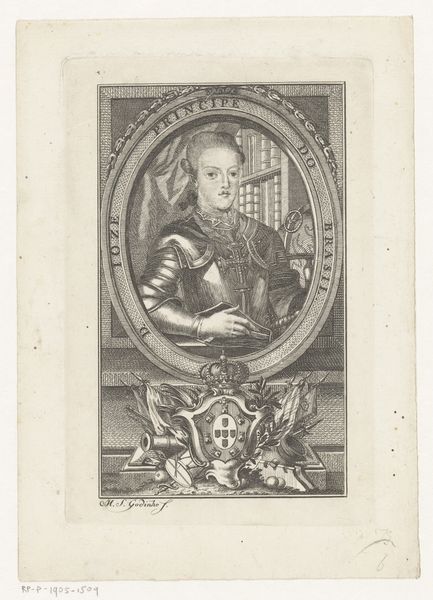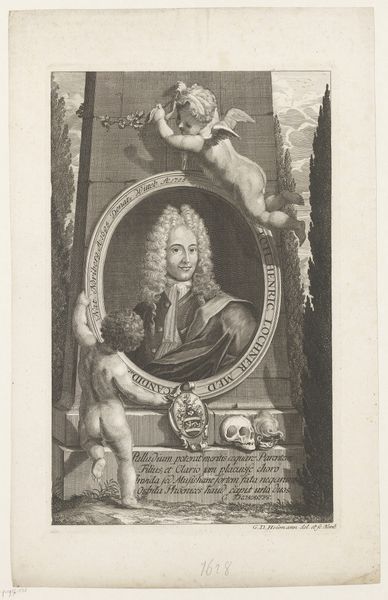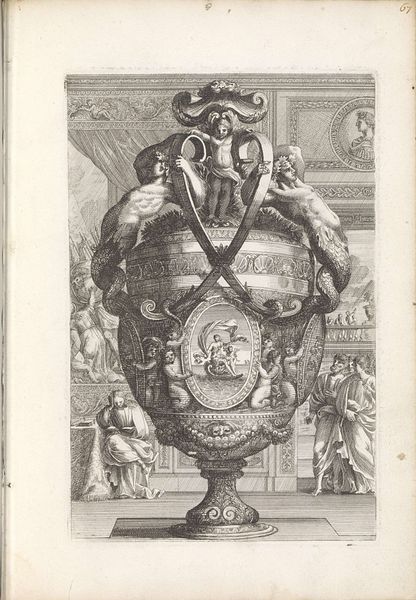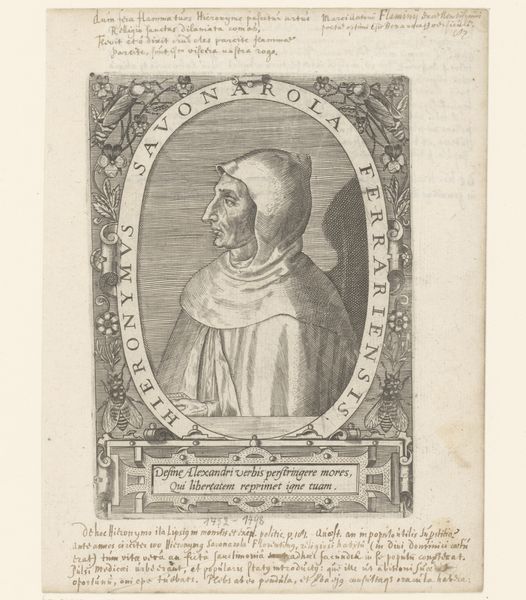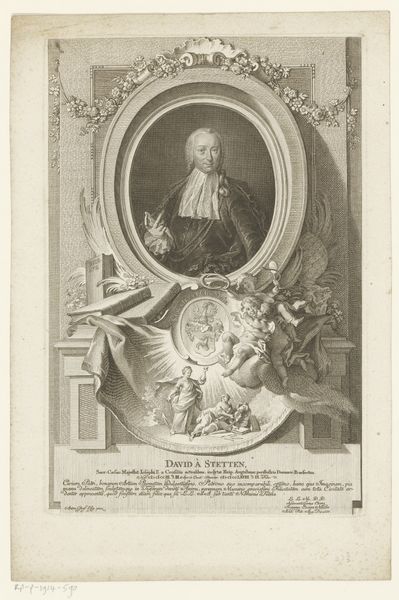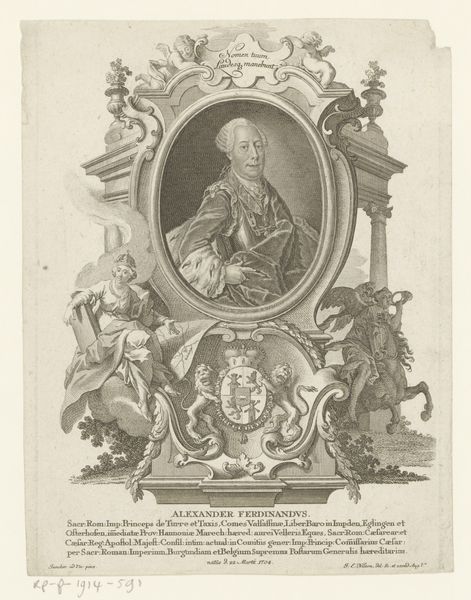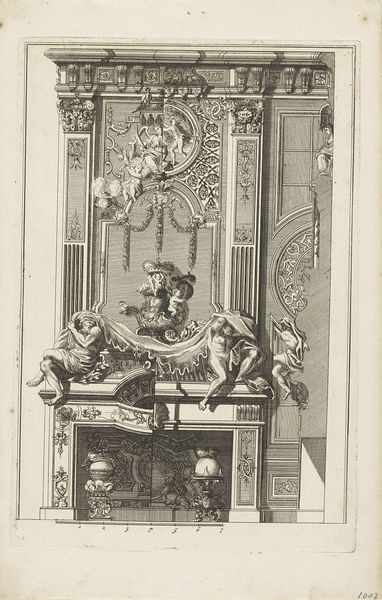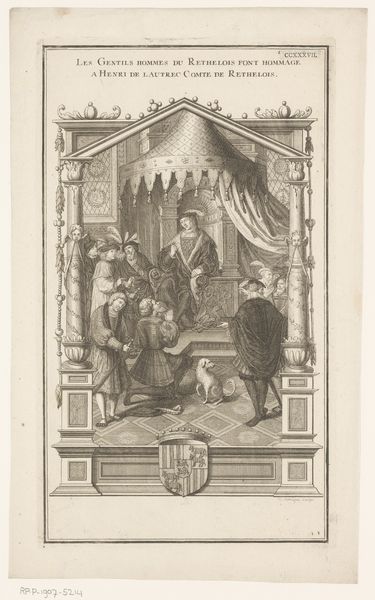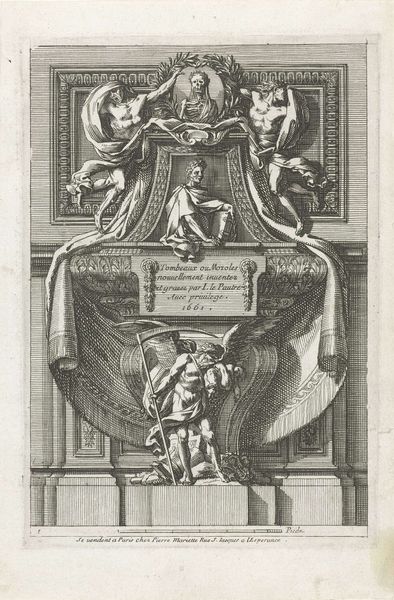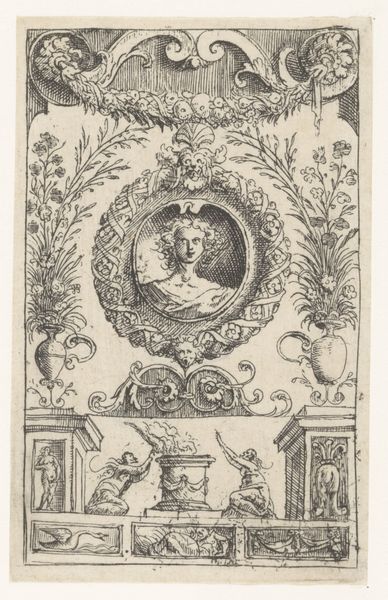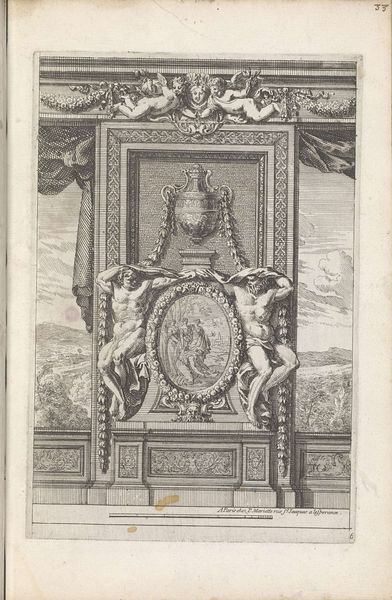
print, engraving
#
portrait
#
baroque
# print
#
old engraving style
#
form
#
line
#
history-painting
#
engraving
#
realism
Dimensions: height 385 mm, width 274 mm
Copyright: Rijks Museum: Open Domain
Bernhard Vogel created this portrait of Johann Carl Löffelholz von Colberg using engraving techniques sometime between 1683 and 1737. It presents an interesting case study in the way portraiture was used to convey social status in the German-speaking lands of the late Baroque era. Note the way Löffelholz is framed within an oval border, a common visual trope that elevates the sitter. The Latin inscription emphasizes his role as a military prefect. Vogel also uses heraldic devices, like the crest at the bottom, and the draped curtain to signal Löffelholz’s noble status and cultivated persona. The meticulous detail in the engraving mirrors the subject's concern with projecting an image of power and refinement. To understand this work fully, we need to delve into the social hierarchies of the Holy Roman Empire. Genealogical records, military archives, and studies of Baroque court culture can help us understand the precise ways in which individuals like Löffelholz sought to solidify their positions within the existing power structures. Only then can we appreciate the role of images like this in the social theater of the period.
Comments
No comments
Be the first to comment and join the conversation on the ultimate creative platform.
